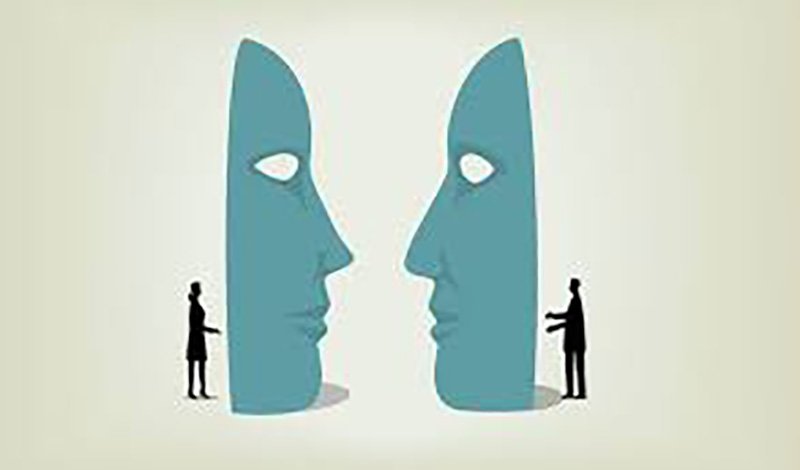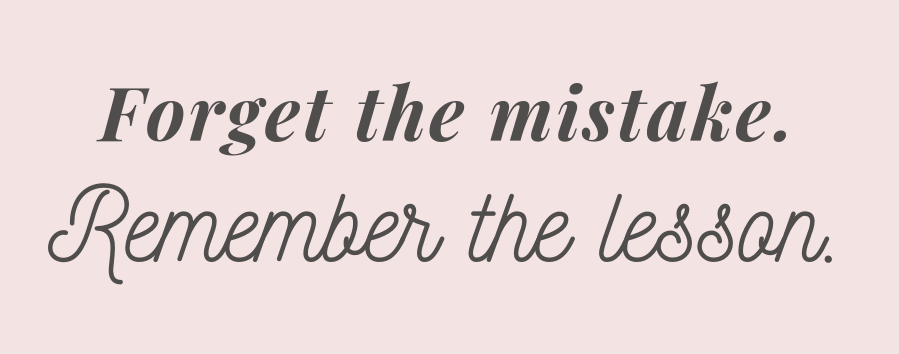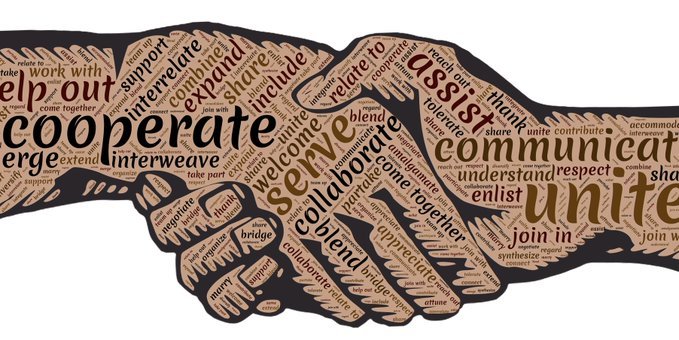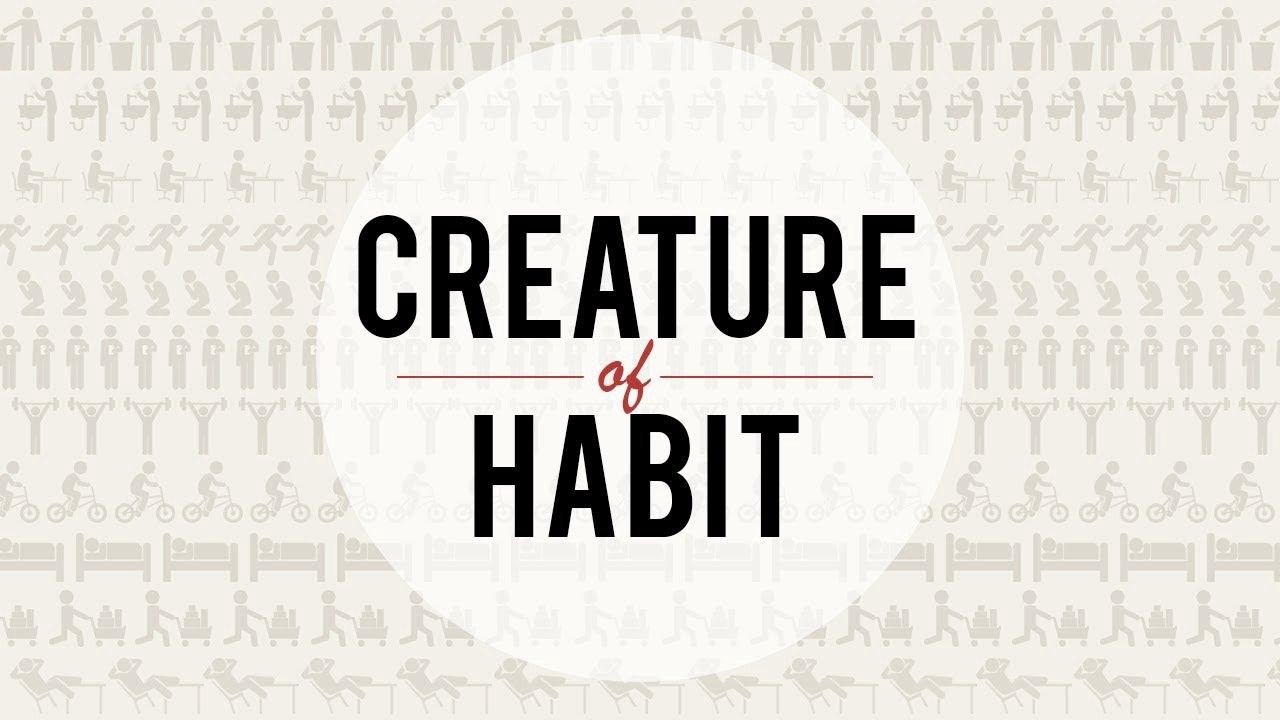Most salespeople are product pushers, I think you have to stop acting like a seller and start thinking like a buyer. In other words, spend more time discovering their problem and then use this knowledge to solve their problem. The ability to uncover problems that the buyer already has becomes much easier when you detach yourself from the outcome. All salespersons can find out the buyers’ problems, but only the best salespersons can find out their why. And only the greatest salespeople can find out what’s behind their why. It doesn’t matter what industry; you have to learn the right questions to uncovering what’s behind the buyer’s why.
TIP: Ask questions slowly, as it will give the buyer time to be a little more reflective in their answers.
Learning by doing
Why is experience in life considered to be the best teacher?
I think experience is one of the best teachers because when you do something you are actually involved in the whole process. And this helps you understand your behaviour and reaction towards a given situation. Learning by doing and teaching by experience can produce higher learning results and have a more lasting effect. Too many people in sales get a little bit of success and get carried away thinking they know it all, and don’t need to practice, study, plan, or review because they think they are already great. Sometimes that’s just the ego, but I think it’s imperative to remain humble. Do you think that happens in any other profession, sport, or activity?
“For the things we have to learn before we can do them, we learn by doing them.”
Certified trainer
The Power of Habits training is based on the New York bestselling author, Charles Duhigg’s book of the same name, “The Power of Habits”. During the Covid lockdown I completed the Power of Habits training course and learned how habits work and how to unlock the power to change them. The training taught me the skills to identify and create the habits needed for success within your organisation. The course focused on the science of habit formation and helped us to learn how to recognise when they need to change, what behaviours they ought to change, and how to make the desired behaviours stick. It sounds simple but in practise it’s much more difficult, for example,
a) Identify the habits,
b) Use skill instead of will, to replace limiting habits with effective ones, and
c) Create new routines that produce desired outcomes.
It's a selfish desire
Everyone who you come into contacts with wants to know what’s in it for them and they don’t really tell you what they are going to get out of it, they may not even know or realise, nor want to admit it. One thing for sure is that they are thinking about it because it’s a selfish desire and in most cases, they wouldn’t care if it wasn’t selfish. Once you figure out what it is and you genuinely understand these concepts, you can use it for good or you can use it mysteriously, and this is so powerful that professional salespersons need to keep it in check.
Just imagine that you had a framework of questions that would unveil what your buyers vested interest were and a guided series of “need/payoff” questions that align with your buyers. These questions are just as valid in a romantic scenario and I know they will give you an advantage over your competitors. Contact me via e-mail if you are interested learning these concepts?
There are a lot of factors
What separates an average salesman and a good salesman?
I think what separates them is the understanding that in sales it’s all about the customer and not about yourself. Most salesmen are trained to learn a bullet point pitch and closing related to the pitch, and they are not trained to understand why customers are not buying. Good salesmen know how to ask deeper questions which are not scripted. I think sales in general is about finding the customers pain points and guiding your customer through a sales process where your product or service metaphorically fixes their pain. I have been a salesman and nowadays I’m a consultant, and if you go through sales training or workshop with me, your sales team will learn the tools to communicate value. Contact me via e-mail for sales training and workshops.
The next level
“People will not have time for you if you are always angry or complaining. ”
In my experience there are seven main reasons why people get promoted:
1. Results
2. Attitude
3. Creativity
4. Reliability
5. Consistency
6. Relationships
7. Problem solving skills
It's hard to teach
Strong leaders teach the hard stuff and it's really hard to teach the following:
1. A sense of urgency
2. Critical thinking
3. Creativity
4. Customer empathy
5. Team commitment
6. Humility
7. Unselfish giving
8. Judgement
9. Grace and dignity
10. Positivity
11. Optimism
12. Bias towards results
13. Active listening
We still have to do it
It still fascinates me when I see and hear salespersons fall into the pricing trap, and nowadays even more salespersons are falling into the features and functions trap. Sales is a performance-based profession and how well you do it in the eyes of your clients is all what matters, as your clients are the receivers of all your communication – written, oral and visual. It’s all a performance, not just the words, it’s the tonality, inflections, the timing, it’s the whole sequence of things and at this could seem overwhelming at the beginning of the process.
How well do you do it?
Hear and react
I think that if you want your business to run effectively one of the best investments you can make for your staff is repeated training. Training enables you to set and raise the standards of staff performance and proactively prepare them for difficult situations. For training to be effective, it has to be repetitive so that important concepts are constantly reinforced and reiterated. In my experience the best training for your sales and marketing teams is via workshops, as this will give them the opportunity to try out techniques before having to react to unfamiliar situations in real life and therefore increasing the chance of success. Contact me via e-mail for tailor made workshops for your organisation.
U is for understanding
How do you scale the understanding of value creation across your organisation?
I think that it’s better to understand something than it is to know it. Sales and marketing teams must demonstrate the ability to collaborate and partner effectively with finance as improved financial literacy will enable stronger strategic debates. Working with finance and the rest of the leadership team is central to fulfilling your commercial objectives whether you are a start-up or a multi-national organisation. Contact me via e-mail for training and understanding workshops for effective sales and marketing teams.
Show me what could have been better
What is the key to a performance-based profession?
I think that in sales it’s all about how well you perform in the eyes of the customers. The customers are the audience, and they are the only thing which matters in the big scheme of things. The customers are the receivers of our communication, and all communication is performance regardless of whether it is written, oral or visual, it’s all a performance.
How well do you perform?
It’s not just the words, it’s the tonality and inflection, it’s the timing, it’s a whole sequence of things and it may seem overwhelming at the beginning, but we still must do it. The repetitions, the feedback, that learning cycle which we all must go through if we want to move from good to great. Contact me via e-mail if you are ready to speak to someone who has no emotional attachment in your deals.
Psychological safety
Yesterday I wrote about research from Carnegie Mellon, M.I.T. and Union College that showed the number one factor that influenced team effectiveness was psychological safety. In other words, for teams to work well together, team members must feel comfortable enough to be themselves, then, and only then, will they contribute to their full potential.
Here are some tips on how to build a psychologically safe culture in your workplace:
· Listen more, talk less.
· Praise generously.
· Reframe negative feedback.
· Pay attention.
And if you cannot do these things, I know someone with the skill set you require, contact me via e-mail for details.
Trust the process
Have you ever been in the situation where you are presenting to potential client and you can see that they just don’t seem to “get it”?
Would you like to know how to share your story in a way that builds trust and interest with your ideal clients without sounding like you’re just bragging about yourself?
Would you like to know how to teach in a way that opens up your listeners to new perspectives and helps them visualise what it’s like to be successful with you?
Would you like to how to talk about your products and services in a way that gets your audience taking notes and leaning in, instead of feeling like you’re being pushy and selling them?
Would you like to know exactly how to structure a great talk and stories within that talk so you can create sales with confidence every time you speak?
Contact me via e-mail to schedule a meeting about the right framework for driving growth for your business.
A simple buying process
I love to simplify complex things and I think that buyers go through 3 stages before purchase:
⁃ Awareness: What’s the problem and what’s the desired outcome?
⁃ Consideration: How can we achieve these things?
⁃ Decision: Who are we going to do this with?
The first two platforms are a battle over ideas and as a salesperson you must come into buying meetings with good questions and ideas. Buyers usually do their research and will get the facts and figures online, so salespersons have to step their game. We have start getting salespersons to start having conversations instead of giving presentations - true storytelling with references and testimonials. Contact me via e-mail when you are ready for a sales training and storytelling workshops.
The 4 C's
Why are these skills important?
1. Communication
I think communication is all about sharing thoughts, ideas, and questions. Communication can come in many it’s not just speaking verbally as non-verbal cues such as hand gestures and facial expressions are just as important. And nowadays, as we live in a digital world, it is also important to learn how to responsibly navigate digital spaces.
2. Collaboration
I think the ability to collaborate and work together to reach a common goal is a skill worth practicing. Problem solving and tackling issues in which are bigger is essential if you want a career in any field.
3. Critical Thinking
I think by looking at problems in a new way and simply asking “Why?” in today’s world where we can get information at the click of a button, a large part of critical thinking is being able to look at information and decide if it is credible or not.
4. Creativity
I think being creative is trying new approaches to solve problems by simply thinking outside the box in any area. Creativity can be taught and fostered by encouraging your team to try new things and by creating a safe space for them to express themselves.
Setting goals
I wrote it down, put a date on it, listed the obstacles I had to overcome, identified the people, the groups, the organisations I needed to work with, spelled out a plan of action, set that time limit in there, and identified all the benefits to me. It was only when I did that, that the goal became a reality.
“If you want to achieve your goals, help others achieve their goals.”
A process to understand
I recently discovered a beautiful Hebrew word, “kavod”, and it means honour and respect. Honour and respect are very important in any society but even more so in Middle Eastern societies. The Middle East is a place where people swear “on the honour of their mother” without thinking too much. Perhaps we should ask ourselves, “Is it kavod?” before everything we say, think, or do.
Most people don’t know the difference between coaching, mentoring, and training. Rather than having a one size fits all approach, I try to use self-discovery methods to enable the customer to see where they fit in. If you want your brand to stand out in these competitive, unstable times, you’ll want to shift from a product-based “what” brand to a mission-driven “why” business. Shifting your brand and business from “What” to “Why" will bring huge economic benefit and help you secure optimal customer preference and loyalty.
Once upon a time
Illustration by Liz Fosslien ©
As a guest lecturer my role was always to help the students to create some kind of value from day one. I was not expecting them to be mini-CEOs, all I expected was open-minded fresh thinkers who are willing to learn and where possible offer value. Technology, products, and services flow effortlessly around students and the way they navigate them is totally different than someone like me.
1. I ask them to reflect and articulate what they see?
2. What are the values that are important to them?
3. How can a brand (product) or service tap into their important values better than now, and in relation for their future audience?
I met 3 types of students:
“The hopeful” - Who were excited about the creative industries and the possibilities. My role was to give them a deeper sense of reality
“The disrupter” - I can do it better type! Here I would give them another perspective, a greater sense of realism and balance so they could better understand the change mechanism and transformation.
“Help me” - The ones where the challenge was not meeting their expectations.
Growth is a process
Too often experts will dive into their presentation without presenting a roadmap and this usually leaves the audience unsure about what is going to be covered, why and when the presentation will end. Presenting a table of contents before they dive in and begin to talk puts everything into context and helps your audience to know where they are in the presentation. Road mapping allows the audience to see the key points you are going to explore and puts them into context and helps them relax into your teaching and allows them to relate it to the bigger picture and the promise of your presentation. I think if you implement this simple framework with your content, copywriting and speaking you will begin to see a sense of trust, and ultimately this will lead to more conversions.
We are all creatures of habit
c/o Medium
In his book, “Change Your Mind, Change Your Results”, Shawn Shewchuk highlights that the roadmap for success is printed on the outside of the box you put yourself in. Putting on my clothes and tying my shoelaces are so firmly placed in my subconscious mind they have become habitual. Everything is a habit whether you admit or not. As children we are taught that practice makes perfect, but many of us have been practicing the wrong things for far too many years.
“There are no high-performance people, there are only high-performance habits.”
There is a huge difference between waiting for orders and taking initiative. Statistics show that 90% of the western world is waiting for someone to do something for them. The best investment you can make is an investment in yourself as it will deliver the best return on investment. Where will you be in 5 years? Contact me via e-mail for a meeting if you want to improve the quality of your life.





















